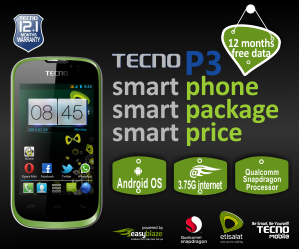Source: afi-global.org
The Lagos-based head office of the Union Bank aspires to enter into collaborations with mobile money enterprises Pocket Moni and Union Money as part of the Cashless Policy Campaign.
Uwa Uzegbu, head of mobile payment at eTranzact, told The Nation the partnership will expand the market share of the firms.
Licensed by the Central Bank of Nigeria (CBN), Pocket Moni already boasts a user count of 400,000 Nigerians.
The success of this sealed partnership depends on the reaction of the apex bank and other stakeholders to raise an awareness campaign on the matter, according to Fatai Baruwa, head of e-business at Union Bank and Richard Omoniyi, chief technology officer at eTranzact International.
The campaign aims to fulfil the federal government’s financial inclusion strategy and boost the alternative payment methods, other than cash.
This follows the identification by the UBN and worldwide known electronic card payment firm eTranzact of false transactions and the lack of awareness as the main factors standing in the way of mobile money use.
These players have encouraged the CBN to join in the campaign, enlightening citizens about the advantages of using mobile money.
Baruwa said communication was one of the main challenges: “Part of the major problems facing the initiative is that the banks and CBN need to improve on communication.
“We are not communicating well, we are not saying exactly what this thing can do, we are not disseminating the message well any time we go out.”
Omoniyi stated education plays a key role in the success of mobile money to defeat sceptical ideas among Nigerians.
“One thing that is important is education.
“CBN needs to push further. Awareness is very vital in this regard because people still find it hard to believe that in their cell phones, they could send money to pay for goods and services.”
Financial inclusivity and tapping into the initiative of the apex bank’s cashless economy are also listed as the two top benefits.
Mobile payment charges will also be investigated in an effort to make it more economical for increased usage.


